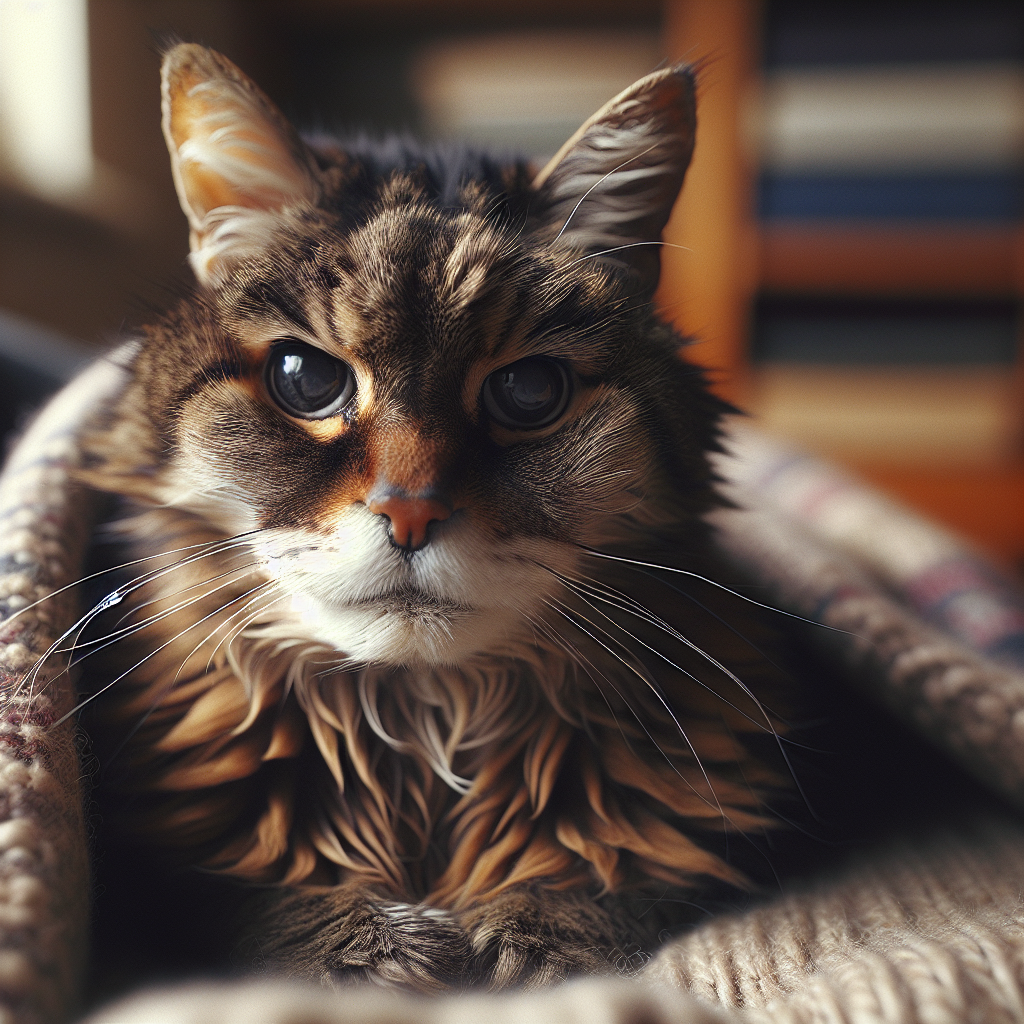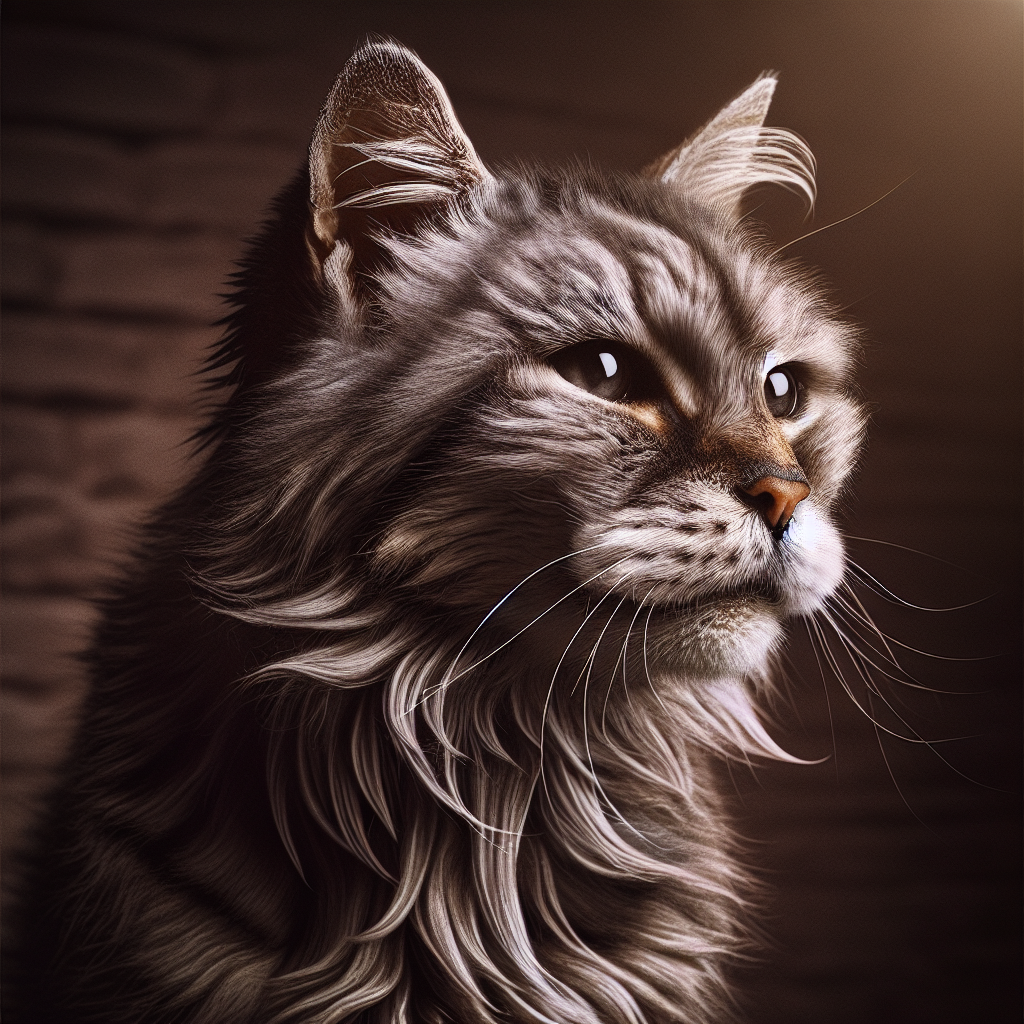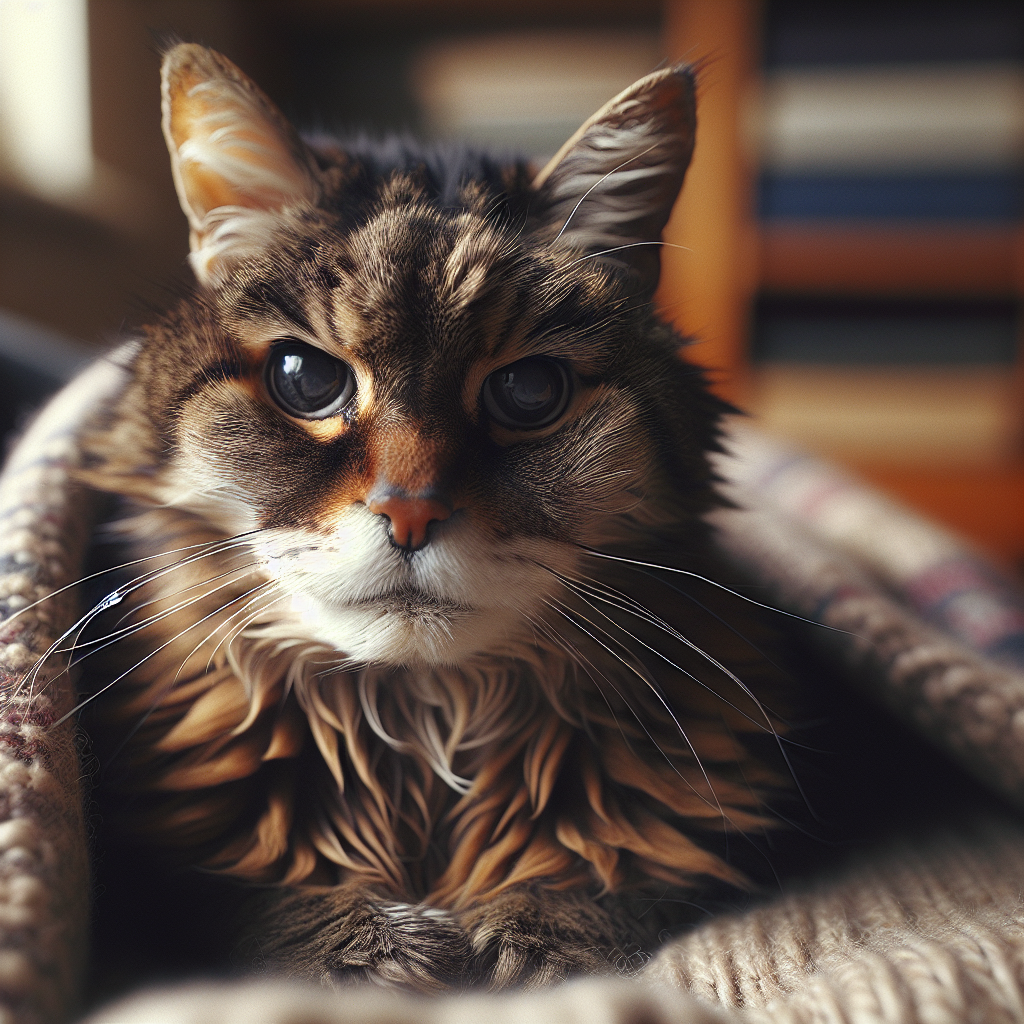Imagine the stories a 15-year-old tabby cat could tell if it could talk. From kittenhood to senior years, this furry friend has likely witnessed a multitude of adventures and cozy nap times. But have you ever wondered just how old a 15-year-old tabby cat really is in human years? In this article, we will explore the age equivalency of our feline companions and uncover the fascinating milestones that come with being a mature tabby cat. So, grab a cup of tea, settle into a comfy spot, and let’s embark on a journey into the age of a 15-year-old tabby cat.

Overview
What is a tabby cat?
A tabby cat refers to a common coat pattern in domestic cats. It is not a specific breed, but rather a pattern that can be found in many different breeds. Tabby cats are known for their distinct markings, which typically include stripes, swirls, or spots on their fur. These markings can vary in color, ranging from gray and brown to orange and even silver. Tabby cats are beloved by many for their unique and beautiful coat patterns.
What is the average lifespan of a tabby cat?
The average lifespan of a tabby cat, like any other cat, can vary depending on various factors. On average, tabby cats can live between 12 to 16 years. However, with proper care and attention, it is not uncommon for a tabby cat to reach the age of 17 or even 20 years. Just like with humans, genetics, lifestyle, and overall health play a significant role in determining a tabby cat’s lifespan.
Introduction to the age of a 15-year-old tabby cat
Congratulations on having a 15-year-old tabby cat! You are the proud owner of a senior feline friend who has reached a significant milestone in their life. At this age, your tabby cat is considered a senior, and it’s important to be aware of the unique needs and considerations that come with caring for an older cat. In this article, we will explore the factors that can affect a cat’s age, understand cat years vs. human years, discuss age-related health concerns, and provide tips on how to care for and enhance the quality of life for your 15-year-old tabby cat.
Factors Affecting Cat Age
Genetics
Genetics play a role in determining a cat’s lifespan. Some cat breeds may be more prone to certain health issues, while others may have genetic traits that contribute to a longer life expectancy. However, it’s important to note that tabby cats can come in various breeds, or even be mixed breeds, making it challenging to predict their lifespan based solely on genetics.
Breed
While the tabby pattern can be found in many different cat breeds, it’s worth mentioning that certain breeds tend to live longer than others. For example, the Siamese and Bengal breeds have been known to have longer lifespans compared to some other breeds. However, this is not an absolute rule, and each cat is an individual with their own unique genetic makeup and health considerations.
Healthcare
Regular veterinary care is essential in maintaining a cat’s overall health and extending their lifespan. Annual check-ups, vaccinations, and preventive measures such as parasite control are crucial for detecting and addressing any potential health issues before they become more serious. Your veterinarian can also provide guidance on age-appropriate screenings and tests to monitor your tabby cat’s health as they age.
Diet
A balanced and nutritious diet is vital for the overall wellbeing of your tabby cat. As cats age, their dietary needs may change, and it’s important to provide them with food specifically formulated for senior cats. Senior cat food typically contains fewer calories, adjusted protein levels, and supplements to support joint health. Consult with your veterinarian to determine the best diet plan for your 15-year-old tabby cat.
Exercise
Regular exercise is important for cats of all ages, including seniors. While 15-year-old cats may not be as active as their younger counterparts, maintaining some level of physical activity is beneficial for their overall health and wellbeing. Engage your tabby cat in gentle play sessions and provide them with interactive toys that encourage movement and mental stimulation. It’s important to tailor the exercise routine to your cat’s abilities and avoid overexertion.
Environment
Creating a safe and comfortable environment for your 15-year-old tabby cat is crucial. Senior cats may require easier access to food, water, litter boxes, and resting spots, considering any mobility issues they may develop. Consider providing ramps or steps to help them navigate elevated areas, and ensure their living space is free from hazards that may pose risks to their wellbeing. A calm and stress-free environment can contribute to a better quality of life for your aging feline companion.
Understanding Cat Age
Cat Years vs. Human Years
It is a common misconception that one cat year is equivalent to seven human years. In reality, the calculation is more complex, as cats mature faster and age more rapidly than humans during their early years, with the rate slowing down as they get older. A generally accepted guideline is that one cat year is approximately equivalent to four human years during the first two years, and then it slows down to about two human years for each cat year thereafter. This means that a 15-year-old tabby cat would be roughly equivalent to a human reaching their mid-sixties.
The Aging Process in Cats
Just like humans, cats undergo physical and physiological changes as they age. These changes can manifest in various ways, including changes in coat appearance, decreased activity levels, and alterations in appetite and digestion. It’s important to be observant and attentive to any changes in your 15-year-old tabby cat’s behavior or physical condition, as they may indicate underlying health concerns.
Signs of Aging in Cats
As cats age, they may exhibit certain signs that indicate the natural aging process or potential health issues. These signs can include:
- Changes in appetite: Some cats may experience a decrease or increase in appetite as they get older.
- Weight changes: Senior cats may start to lose or gain weight, and it’s important to monitor their body condition regularly.
- Decreased activity: Older cats tend to be less active and spend more time sleeping or resting.
- Changes in litter box habits: Senior cats may experience changes in their bathroom habits, such as increased frequency or difficulty in using the litter box.
- Vocalizations: Some aging cats may become more vocal, while others may become quieter than usual.
- Changes in coat and grooming habits: Older cats may have a less glossy coat, develop mats, or have difficulty grooming themselves due to mobility issues.
- Behavioral changes: Cats may display changes in behavior, such as increased clinginess, irritability, or disorientation.
It’s important to remember that these signs can also be indicators of underlying health issues, so it’s essential to consult with your veterinarian if you notice any changes in your tabby cat’s behavior or health.
Age-related Health Concerns
Arthritis and Joint Issues
Arthritis is a common condition in older cats and can cause discomfort and pain. Symptoms may include stiffness, limping, difficulty jumping, and decreased mobility. Your veterinarian can provide guidance on managing arthritis pain through medication, supplements, and lifestyle adjustments.
Dental Problems
Dental issues, such as gum disease and tooth decay, become more prevalent in older cats. Regular dental check-ups and professional cleanings may be necessary to prevent plaque buildup and maintain good oral health. Dental treats and special diets designed to promote dental health can also be beneficial.
Kidney Disease
Chronic kidney disease is a common condition in senior cats and can lead to dehydration, weight loss, increased thirst, and changes in urination habits. Regular check-ups, blood work, and dietary modifications may be necessary to manage kidney disease and slow its progression.
Hearing and Vision Loss
Like humans, cats can experience hearing and vision loss as they age. They may become less responsive to auditory cues or show signs of impaired vision. Creating a safe and familiar environment can help cats navigate their surroundings more effectively as their senses decline.
Cognitive Decline
Senior cats may experience cognitive changes, such as confusion, disorientation, and decreased cognitive function. This can manifest as changes in behavior or increased agitation. Environmental enrichment, mental stimulation, and a consistent routine can help alleviate cognitive decline and provide comfort for your aging tabby cat.

Caring for a 15-year-old Tabby Cat
Regular Veterinarian Check-ups
Regular veterinary check-ups are essential for monitoring your 15-year-old tabby cat’s health and detecting any potential issues early on. Your veterinarian can recommend an appropriate schedule for check-ups, vaccinations, and screenings based on your cat’s individual needs.
Managing Pain and Discomfort
As cats age, they may develop chronic pain or discomfort due to conditions such as arthritis or dental issues. Your veterinarian can prescribe medications or interventions to help manage pain and improve your cat’s quality of life.
Providing a Senior-friendly Environment
Creating a senior-friendly environment involves making adjustments to accommodate your tabby cat’s specific needs. This may include providing easy access to food, water, litter boxes, and comfortable resting areas. Consider installing ramps or steps to help them navigate elevated surfaces more easily.
Tailoring Diet and Nutrition
Consult with your veterinarian to determine the most appropriate diet for your 15-year-old tabby cat. Senior cat food often contains ingredients that support joint health and are formulated to meet the specific nutritional needs of aging cats. It’s important to monitor their weight and adjust their diet accordingly to maintain a healthy body condition.
Maintaining Mental Stimulation
Mental stimulation is important for senior cats to keep their minds active and engaged. Interactive toys, puzzles, and scratching posts can provide mental stimulation and help reduce cognitive decline. Regular play sessions can also provide exercise and bonding opportunities for you and your tabby cat.
Enhancing Quality of Life
Gentle Exercise and Play
While senior cats may not be as energetic as their younger counterparts, gentle exercise and play sessions are still beneficial. Encourage your tabby cat to engage in light play activities that don’t place excessive strain on their joints. Wand toys, laser pointers, and puzzle toys can be excellent options for keeping them physically and mentally active.
Interactive Toys and Puzzles
Interactive toys and puzzles can help keep your 15-year-old tabby cat mentally stimulated and provide a source of entertainment. Toys that encourage hunting behaviors, such as treat-dispensing puzzles or puzzle feeders, can be particularly enjoyable for senior cats.
Creating a Stress-free Environment
Aging cats may become more sensitive to stress and changes in their environment. Minimize stressors by providing a calm and predictable living space. Avoid sudden changes, excessive noise, or disruptions that could cause anxiety or distress for your tabby cat.
Maintaining Routine and Structure
Cats are creatures of habit, and maintaining a regular routine can help provide comfort and stability for your 15-year-old tabby cat. Try to keep mealtimes, play sessions, and sleep schedules consistent to minimize stress and promote a sense of security.
When to Seek Veterinary Care
Recognizing Signs of Illness
It’s important to be vigilant and recognize signs that may indicate illness or worsening health in your 15-year-old tabby cat. Look out for symptoms such as significant changes in appetite, weight loss, lethargy, coughing, excessive drinking or urination, vomiting, diarrhea, or any unusual behavior.
Behavioral Changes
Behavioral changes can be indicative of underlying health problems. If your cat becomes unusually aggressive, excessively vocal, withdraws from social interactions, or displays other significant changes in behavior, it’s important to consult with your veterinarian to rule out any underlying medical issues.
Sudden Weight Loss
Unexplained weight loss in a 15-year-old tabby cat could be a sign of an underlying health problem. If your cat is losing weight despite a consistent diet, it’s crucial to have them examined by a veterinarian to determine the cause and provide appropriate treatment.
Altered Bathroom Habits
Changes in litter box habits, such as urinating outside the litter box, straining to urinate, or increased frequency of bathroom trips, can be indicators of urinary tract issues or other underlying health problems. It’s crucial to seek veterinary care if you notice any changes in your cat’s bathroom habits.
Final Thoughts
Caring for a 15-year-old tabby cat can be a rewarding and heartwarming experience. By understanding the factors that can influence a cat’s age, being aware of age-related health concerns, and providing appropriate care and attention, you can enhance the quality of life for your senior feline companion. Regular veterinary check-ups, tailored nutrition, mental and physical stimulation, and a loving, stress-free environment are key components in ensuring your 15-year-old tabby cat enjoys their golden years to the fullest. Remember, your tabby cat has undoubtedly brought joy and companionship into your life, and now it’s your turn to provide them with the love and care they deserve as they age gracefully.

